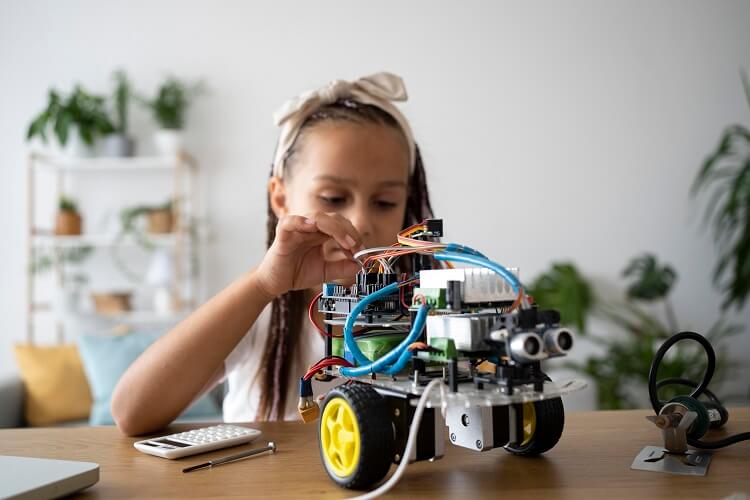From Basic Coding to Advanced Robotics: Exploring the Exciting World of Robotic Courses

Image Source: Google
Robotics is a fascinating field that blends engineering, computer science, and creativity to create intelligent machines that can perform tasks autonomously. With the rapid advancements in technology, the demand for skilled robotics professionals is on the rise. Whether you are a beginner looking to learn the basics of coding or an experienced engineer interested in advanced robotic systems, there are a variety of robotic courses available to suit your learning needs.
The Basics of Robotics
Introduction to Robotics
An introduction to Robotic courses (also known as "Corsi di robotica" in the Italian language) is perfect for beginners who want to learn the fundamental principles of robotics. In this course, you will get an overview of robot design, sensors, actuators, and programming languages. Some of the topics covered in an introductory course include:
- Basic concepts of robotics
- Types of robots
- Robotics components
- Programming basics
Basic Coding Skills
Understanding coding is essential for anyone interested in robotics. Basic coding courses will teach you programming languages such as Python, C++, or Java, which are commonly used in robotics. You will learn how to write and debug code, work with algorithms, and solve problems efficiently. Some key concepts covered in basic coding courses include:
- Variables and data types
- Conditional statements
- Loops and functions
- Debugging techniques
Intermediate Robotics Courses
Robotics Programming
Once you have mastered the basics, you can move on to intermediate robotics courses that focus on programming robots. In these courses, you will learn how to program robots to perform specific tasks using advanced algorithms and techniques. Topics covered in robotics programming courses include:
- Robot motion planning
- Sensor fusion
- Behavior-based robotics
- Simultaneous localization and mapping (SLAM)
Robotics Simulation
Robotics simulation courses allow you to design and test robotic systems in a virtual environment before implementing them in the real world. You will learn how to use simulation software to model robots, environments, and tasks. Key concepts covered in robotics simulation courses include:
- Simulation tools like V-REP or Gazebo
- Creating robot models
- Programming simulations
- Testing and analyzing results
Advanced Robotics Training
Machine Learning for Robotics
Machine learning is revolutionizing the field of robotics by enabling robots to learn from data and improve their performance over time. Advanced robotics courses in machine learning cover topics such as neural networks, reinforcement learning, and deep learning. Some key areas of focus in machine learning for robotics include:
- Image recognition and object detection
- Motion planning and control
- Robot perception and decision-making
- Human-robot interaction
Advanced Robotic Systems
Advanced robotic systems courses delve into cutting-edge technologies and applications in robotics. You will learn about the latest developments in robotic hardware, software, and control systems. Some of the topics covered in advanced robotic systems courses include:
- Autonomous navigation and exploration
- Multi-robot coordination
- Robotic vision and sensing
- Ethical and societal implications of robotics
Conclusion
Whether you are a student, professional, or hobbyist, taking robotic courses can open up a world of possibilities and exciting career opportunities. From learning the basics of coding to mastering advanced robotics systems, there is a course out there for everyone. By acquiring the necessary skills and knowledge in robotics, you can contribute to the development of innovative technologies that will shape the future.
Leave a Reply
You must be logged in to post a comment.